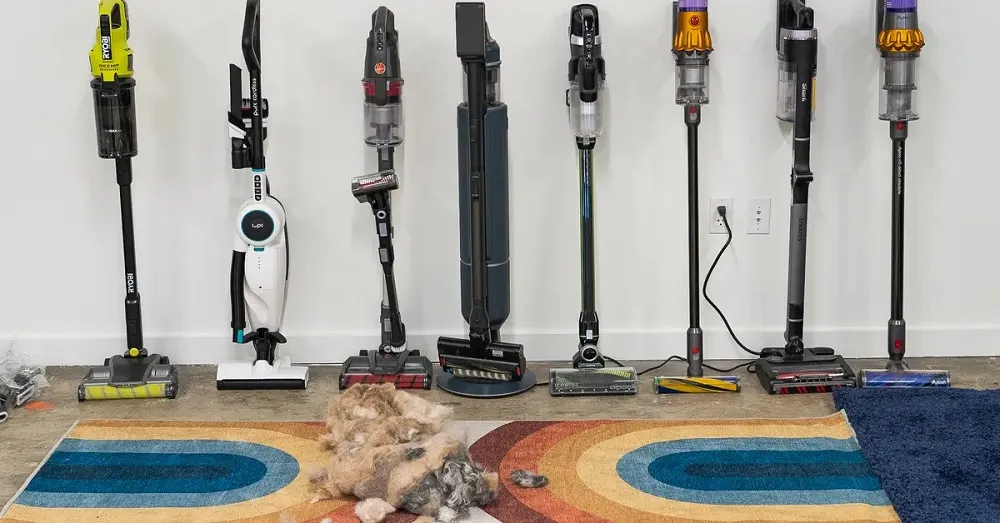A cordless vacuum cleaner can help you quickly clean dirt, dust, hair, and debris from hard floors. It uses less energy than corded models and is easier to maneuver around your home.
However, they use lithium batteries that have an environmental footprint. Fortunately, there are lithium battery-free options.
Energy Efficiency
Unlike corded models that draw energy from the power grid, cordless vacuum cleaners like Dyson use rechargeable batteries to get the job done. They only consume energy when charging, making them more efficient than conventional options and emitting fewer greenhouse gases.
However, the rechargeable lithium-ion batteries used in cordless models have their environmental impact. The mining process for lithium has been linked to water contamination and can hurt local communities. If you want an eco-friendly model, look for a battery-free option with a HEPA filter that reduces allergens and pollutants. You can also minimize the vacuum’s electricity usage by ensuring that its air path is unobstructed. Check the hoses, nozzles, and filters regularly for blockages or clogs.
Another way to minimize energy consumption is to unplug your vacuum when not in use. Even if it’s turned off, some appliances will still consume energy in standby mode, so avoid unplugging your cordless vacuum. This will eliminate unnecessary energy usage and ensure it always uses its full potential. You can also invest in a solar generator that provides clean, renewable energy to run your appliances, including corded vacuum cleaners. For example, Jackery’s portable power stations can lower your household’s electricity expenses and carbon footprint by up to 100%.
Reduced Waste
Vacuum cleaners that require bags, filters, and other replacement parts can create a lot of waste. However, many cordless models use washable filters that reduce the need for replacements and waste generation. This is better for the environment as it prevents microscopic pollutants from recirculating in the air and triggering allergies or other respiratory problems.
Another way that a cordless vacuum can be greener is by not using batteries. While it’s still common for corded vacuums to need lithium-ion batteries, newer technology is pushing the industry towards a switch to more eco-friendly batteries. These batteries don’t produce the same amount of harmful gases as Li-ion batteries and are made with fewer raw materials, which helps to reduce the environmental impact.
In general, all electronics should be recycled when they end their life. Instead of tossing a vacuum in the garbage, donating or selling it or taking it to an electronic recycling facility is best. This helps to reduce waste and demand for new appliances whose production can be environmentally damaging. In addition, reusing or recycling components of a vacuum can also save energy as they don’t need to be built from scratch. This is especially true for central vacuum systems, which typically use recycled or repurposed parts.
Versatility
In addition to their energy efficiency and reduced waste, cordless vacuum cleaners are more versatile than their corded counterparts. This is because they are lighter and unshackle you from the internal electrical layout of your home, allowing you to clean a wider range of surfaces and access harder-to-reach areas. This versatility also allows you to tackle outdoor spaces and cars, reducing the need for separate cleaning equipment and lowering your environmental impact.
However, a drawback of cordless models is that they rely on rechargeable batteries, which have a limited life and need to be replaced. This can lead to wasted energy and a higher carbon footprint, particularly if you use your vacuum frequently. It can also be inconvenient if your battery runs out during a cleaning session, as you must wait to recharge.
Fortunately, some manufacturers offer user-friendly maintenance for their cordless products and use detachable dustbins that can be emptied and cleaned. This reduces the need for replacement bags and filters, which can help lower your household waste output. Many cordless vacuums also use HEPA filtration to remove small particles from the air, preventing them from recirculating and potentially irritating your allergies. This advanced filtration also has the potential to save money on utility bills, as it can reduce your heating costs and cooling requirements.
HEPA Filtration
HEPA (High-Efficiency Particulate Air) filters trap microscopic particles that can trigger allergies and asthma. They are particularly useful in facilities where customers and employees suffer from runny noses, watery eyes, sneezing, or other respiratory issues. In addition to capturing these allergens, HEPA filtration prevents them from recirculating back into the facility after vacuuming.
HEPA filters typically feature a complex web of fibers that trap contaminants using four different methods: impaction, diffusion, interception, and sieving. Larger particles crash into the fibers and stick to them, while medium-sized ones are snared as they pass through. Smaller particles zigzag around the fibers and adhere to them due to molecular attraction. In addition, a quality HEPA filter is sealed to ensure that no dust can escape during operation.
When choosing a cordless vacuum cleaner, look for one with a HEPA filter and a sealed system. This will reduce the waste produced by disposable bags or filters and help protect the environment. It would help if you also considered whether the vacuum has washable filters, as these are reusable and do not create any waste when they need to be replaced. If the vacuum uses rechargeable batteries, be sure to check that they are made from environmentally friendly materials and are sourced ethically. If the vacuum uses lithium-ion batteries, it is important to be aware of the societal and environmental concerns associated with the mining and processing of this battery technology.









